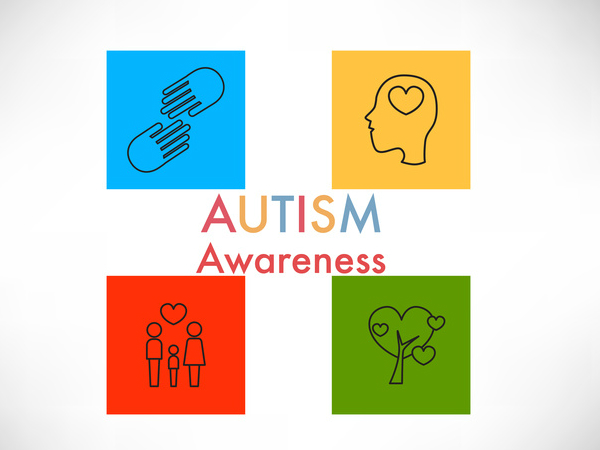
Government-commissioned guidance has been issued to fill a “knowledge gap” among social workers in practice with autistic adults.
The capabilities statement, developed by the British Association of Social Workers (BASW), is designed to equip practitioners to work with autistic adults in a relationship- and strengths-based way while also providing challenge to other services and professionals.
Autistic adults who worked with BASW to develop the guidance said they felt there was a knowledge gap among social workers in working with the group.
Specific issues they raised included practitioners working in a stigmatising way with autistic parents, a lack of access to Care Act needs assessments, and the anxiety caused by home visits.
Related articles
They said they preferred receiving support from social workers with specialist knowledge of autism, and the statement said practitioners should seek out training led by an autistic person to improve their knowledge base.
This is in line with the Care Act 2014, whose assessment regulations require that local authorities ensure that anyone carrying out an assessment has the skills, knowledge and competence to carry it out and is appropriately trained.
Preparing for assessments
The statement emphasises the importance of preparation for home visits and assessments with autistic adults, because of the need to minimise their anxiety and ensure environmental and sensory needs are considered.
This includes social workers writing to the adult before their visit to explain their role and purpose, being punctual, understanding communication needs and doing what they say they will do. As a result assessments may take longer than for other adults, the statement says.
Autistic adults who contributed to the statement said that social workers should involve autistic self-advocates in home visits to increase trust between themselves and practitioners. The statement says social workers should promote self-advocacy to enable autistic adults to identify their needs and challenge professionals.
Challenging oppressive practice
But it also says that social workers should act as advocates for autistic people themselves, including by using their knowledge of the law, power and legal status to challenge oppressive practices in autism services.
In the wake of multiple cases of institutional abuse of adults with learning disabilities or autism, such as Winterbourne View and Whorlton Hall, the statement emphasises the importance of autistic adults being supported in the community, rather than hospitals, wherever possible.
It also highlights the community-based safeguarding risks autistic adults often face, such as ‘mate crime’, grooming and modern slavery, and the importance of social workers being aware of these.
Capabilities statement for social work with autistic adults: key points
The statement says social workers should:
- Understand the distinct oppression and discrimination experienced by autistic adults.
- Promote self-advocacy as a starting point of their work with autistic adults and develop their professional skills to advocate effectively on behalf of autistic adults.
- Ensure that they minimise any anxiety that may be caused by their professional status and their home visits, including through writing ahead to explain their role and purpose.
- Understand people’s preferred methods of communication, including how unaddressed sensory needs can impact on interaction and retention of information.
- Understand causes and indicators of health inequalities in autistic adults,
and how they apply to ethnic minority groups, who face particular forms of discrimination in accessing health and social care services. - Enhance their skills at assessing, intervening, and reviewing the safety and suitability of all care and accommodation arrangements for autistic adults in family and institutional settings.
- Take time to understand the impact of autism upon an individual’s parenting and any necessary adjustments.
The statement was prepared following focus groups with two groups of autistic adults and one of carers, two workshops with social workers, commissioners and managers, observations of services and in-depth interviews with key stakeholders, and overseen by a steering groups of practitioners, autistic adults, carers and practice leaders.
It is designed to be in line with the professional capabilities framework (PCF) and support practitioners to meet the requirements of the knowledge and skills statement for adult social work practice.
This year’s Community Care Live 2019 boasts over 30 free learning sessions to equip you to face the key challenges in social work practice today. You can also sign up to any of our eight legal learning sessions to help ensure you have the legal literacy your role requires. Register now to ensure you don’t miss out.


 Assistive technology and dementia: practice tips
Assistive technology and dementia: practice tips  A trauma-informed approach to social work: practice tips
A trauma-informed approach to social work: practice tips 




 Find out how to develop your emotional resilience with our free downloadable guide
Find out how to develop your emotional resilience with our free downloadable guide  Develop your social work career with Community Care’s Careers and Training Guide
Develop your social work career with Community Care’s Careers and Training Guide  ‘Dear Sajid Javid: please end the inappropriate detention of autistic people and those with learning disabilities’
‘Dear Sajid Javid: please end the inappropriate detention of autistic people and those with learning disabilities’ Ofsted calls for power to scrutinise children’s home groups
Ofsted calls for power to scrutinise children’s home groups Seven in eight commissioners paying below ‘minimum rate for home care’
Seven in eight commissioners paying below ‘minimum rate for home care’
 Facebook
Facebook X
X LinkedIn
LinkedIn Instagram
Instagram
Comments are closed.